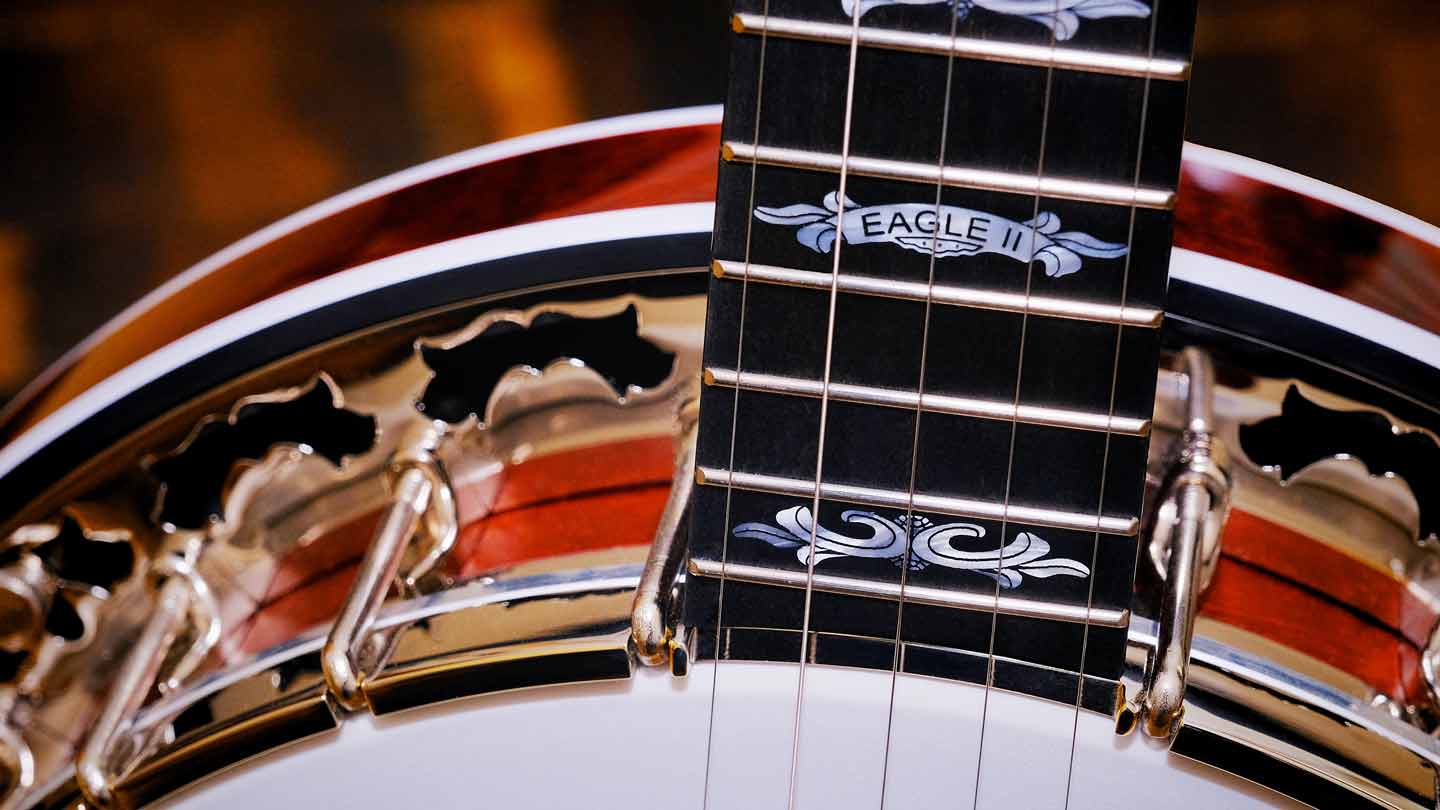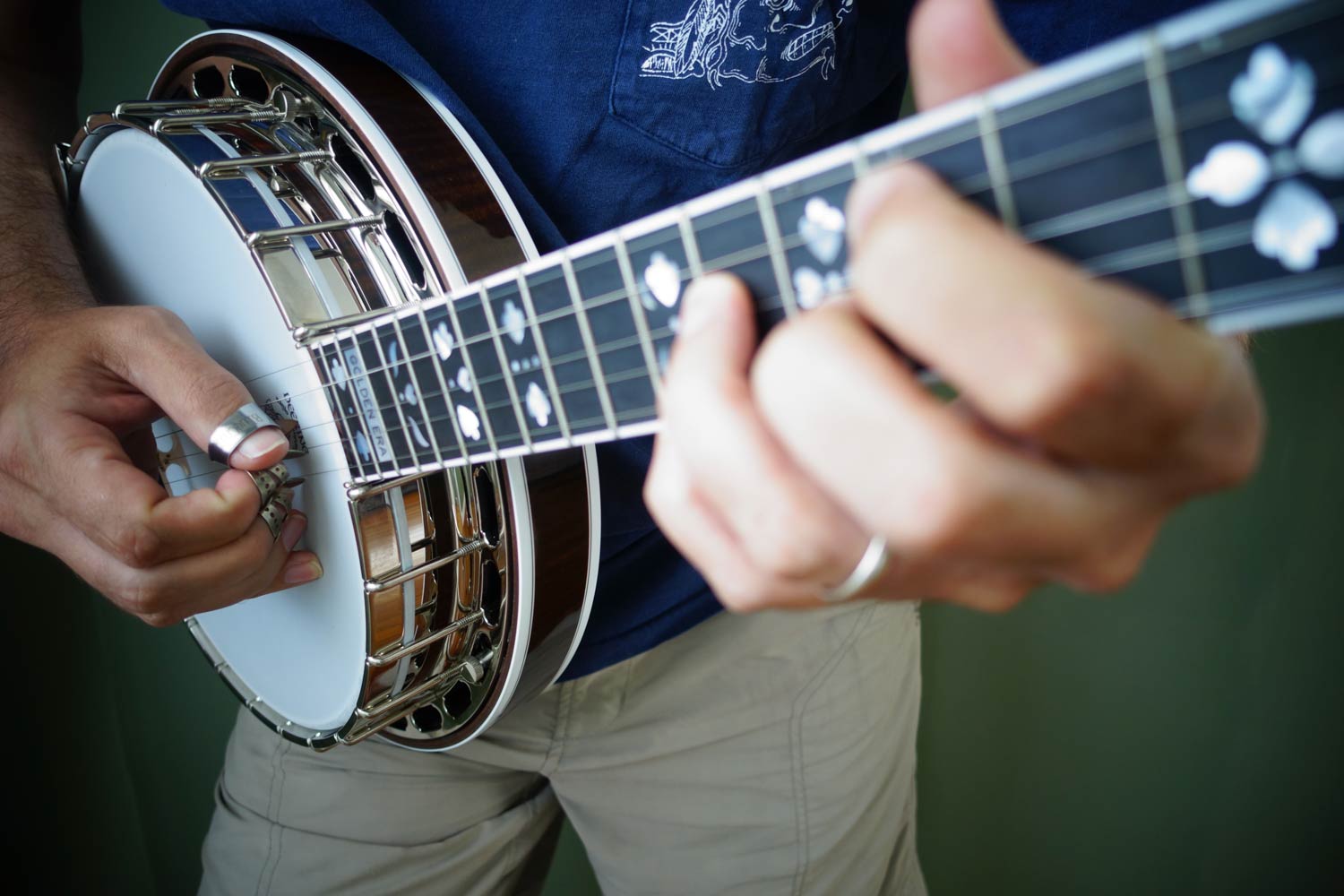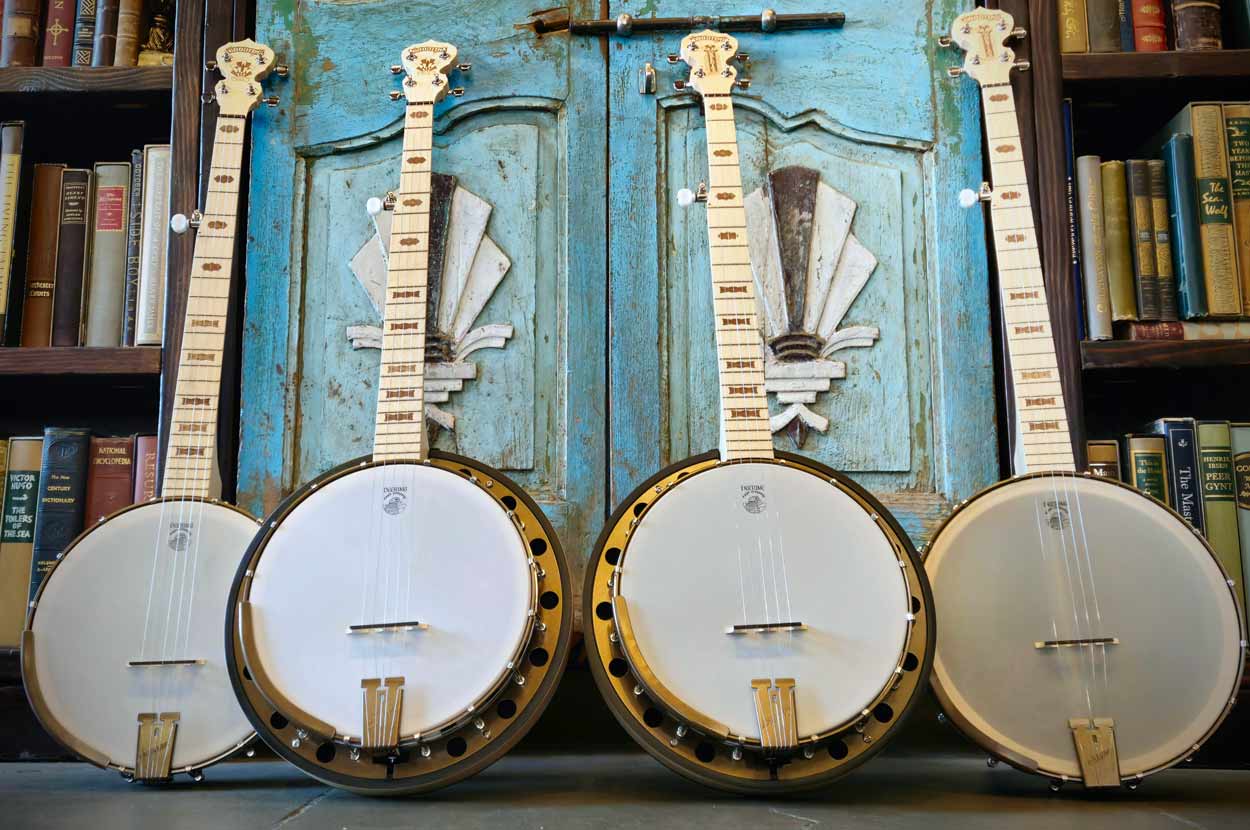Deering introduces Richlite™ to Boston Banjo
All Deering Boston Models to feature Richlite™ fingerboards
As you will have read form our previous article "Deering & Ebony - An Introduction", you will know that Deering faces the challenge of a decreasing availability of Gabon Ebony which we use on finger boards for all of our Deering and Vega instruments. After much testing and deliberation, Deering is extremely happy to announce that with immediate effect, all Boston models will feature finger boards made from a synthetic alternative to ebony called Richlite.
Already widely used in the stringed instruments sector, Richlite is a natural fiber composite made up of mostly recycled paper and a special resin. The finished product is something that bears remarkable similarities to ebony in both the way it reacts to our manufacturing processes and the way the banjo feels, plays and sounds. It is also equally, if not more durable than ebony.
After recently surveying some top players with a specially made Richlite prototype Eagle II, it quickly became apparent that it was near impossible to spot the difference between Richlite and its natural counterpart.
So why would Deering use a synthetic material for a part that has for so long been made from one of natures greatest gifts? Well it comes down to one simple point - Sustainable responsibility. In my last article, I posed the question "Do we blindly continue contributing to the decline of the ebony forests until every last tree is gone? Or do we consider alternative options that will allow us to continue to offer the aesthetics that our customers expect without jeapordising the quality or playability of our instruments?"
The answer is not quite as clear cut as the questions that I asked, but as an industry leader, the one thing that is very clear is that we have a significant responsibility to ensure that we are using natures materials in a controlled and sustainable manner and sometimes this means utilizing other options.
With many synthetic alternatives to ebony on the market, we chose Richlite because:
- Richlite already has a proven track record in the guitar market
- Richlite can be worked in the same way as wood
- Richlite is classified environmentally friendly, utilizing 90% recycled materials and/or FSC Certified materials.
- Production of Richlite does not produce off-gas
- Richlite is 100% made in the USA.
For more information about Richlite, please click here.
All that is left for me to say on this point is "TRY ONE FOR YOURSELF". Please take the time to visit your local Deering dealer and try one of the new Richlite fitted Boston models and see if you can tell the difference!
















Is this different than the Ebanol used on Stellings in the past? As I recall, Ebanol caused the neck to move in ways that wood didn’t when there were changes in heat, etc. Does this product respond to heat the same as Ebony would?
I just wanted to thank you guys for being such responsible manufacturers. From the use of synthetic inlays to some natural finishes not dependent on solvents and now a good ecological alternative to ebony I admire the way you aren’t afraid to stray from tradition in your goal to produce not just a well made instrument, but a thoughtful and conscientious approach to the production of those instruments. It’s rare that a company with high market share, is willing to stick it’s neck out to make potentially controversial change where necessary. And I didn’t even mention your effect as a fair employer!
Thanks for being good!
A Proud Deering Owner.
Leave a comment